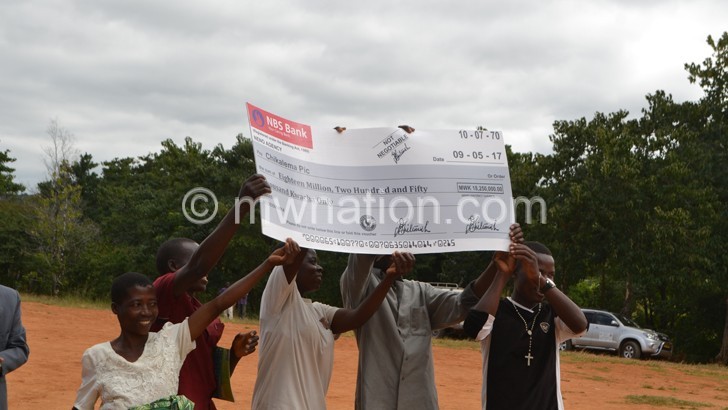Saving Shire with SMEs
In Traditional Authority (TA) Dambe in Neno, poverty forces rural Malawians into environmentally unsustainable businesses. Widespread grass-thatched homes somehow testify to their desperation.
A charcoal seller looked helpless as her son did not go to school for many days because he had no uniform.
“His father has gone to make charcoal. We hope to buy a uniform for him if all goes well,” she said, worried about the boy’s bleak future.
The area has strict by-laws to safeguard vanishing forests.

The locals usually process and source charcoal from surrounding localities where forestry laws are less strict.
This guarantees them quick money from travellers who buy bags that cost three times more in Blantyre City.
But trees along the Shire River are going up in smoke at an alarming rate.
The country loses up to three trees in every 100 a year.
This ruins the country’s largest river, affecting the farming communities immensely.
Among other things, conservationist Claire Birtwhistle warns that Siltation will negatively affect communities whose livelihoods depend on the river.
Her article which appeared in African Geographic magazine reads: “Currently, the Shire River is facing major problems with siltation due to the large-scale deforestation that is happening in Malawi. This siltation broadens the river and decreases its flow.
In 2015, floods devastated most parts of the Southern Region, especially the Lower Shire Valley districts of Chikwawa and Nsanje.
Also affected is the fishing industry as the fish either die or move on to find better conditions.
“This, in turn, makes it harder and harder for the fishermen to catch what they need,” Birtwhistle argues in her article.
The prevailing challenges, coupled with fear of worse calamities if deforestation and siltation are left unchecked, have persuaded government to embark on the Shire River Basin Management Programme (SRBMP) with support from the World Bank.
The initiative to conserve the Shire and mitigate disasters is engaging communities in projects to end deforestation.
Taming wasteful felling of trees is expected to reduce siltation of the river, which produces 96 percent of electricity in the country and supports numerous agricultural enterprises.
SRBMP is supporting Neno, Ntcheu, Machinga, Zomba and Blantyre district councils to ease dependence on natural resources.
Consultants at Mott MacDonalds are supporting reforestation projects, road rehabilitation and loans for small businesses.
In Neno, communities are constructing bunds, planting fruit trees and bamboos along river banks.
SRBMP has injected K146 million to help the groups engage in alternative livelihoods. The locals have formed committees that have submitted project plans on business ventures of their choice.
So far, 30 business groups in Neno have been trained in business management and group dynamics.
District Council chairperson Montfort Bwanali is optimistic that the skills and loans provided will help Neno, which is haunted by massive soil erosion due to poor farming methods, overcome environmental degradation.
“We have long blamed environmental degradation on poverty. Now we have the capital at very reasonable interest. As we do our businesses, we must always remember to save the environment,” he says.
Chikalema Plan Implementation Committee (PIC) recently received K18.2 million.
Its chairperson, Wyson Muyatso, is optimistic that this will lead to profitable business likely to develop the country in an environmentally sustainable way.
The intervention includes public works programmes in which community members are improving some rugged rural roads to facilitate smooth flow of goods and services offered by the entrepreneurial groups.
Chikalema is among eight committees which have met the requirements for the soft business loans.
Mwanza North legislator Emmanuel Lozo is grateful for the business starter-packs and mushrooming businesses.
But he says the continuity of the Shire River restoration depends on deepening a culture of environmental conservation.
“Money is slippery. Let us teach our children right from our homes how to conserve the environment,” he says.
He urges Malawians to practice family planning since rapid population growth exerts immense pressure on the environment along the 402-kilometre river which flows from Lake Malawi.
Shire is a national treasure that cannot be left to waste.
The enterprise development projects happening in some districts on its banks will also enhance fishing, power generation, water supply, marine transport, irrigation and tourism.
Small-scale businesses are taking part in sustainably managing and harnessing natural resources for their economic wellbeing.
With the intervention, lack of capital and knowledge will be history.n





